NGO and associations
What is done around the world?
Several NGO and other Associations worked unopposed to fight against this plague that is plastic in our oceans. These are their contact links and videos. Do not hesitate to consult them, to inspire them and to support them in their approach by going on their site.
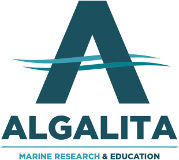
Charles Moore discovered in 1997 during a sailing race, the existence of huge floating plastic plates accumulating in piles. These clusters are explained by the presence of permanent eddies generated by the marine currents. These plates are present as much in the Pacific, as the Atlantic or even the Mediterranean (about 115 000 km²).
Following this alarming discovery, Charles Moore created the NGO Algalita Marine Research and Education Foundation.
Blue Ocean Watch (BOW) “the interface between science and people”
Blue Ocean Watch brings together filmmakers, writers, sailors, explorers and scientists in oceanography and marine biology. Together, they seek to make the results of research carried out on board scientific vessels available free of charge and worldwide. They work in collaboration with global research partners, including EurOcean (The European Information Center for Marine Sciences: 17 research organizations developed in 10 European countries).
They allow university students to speak with scientists on board and also to remotely use probes and measuring instruments present on boats.

Blutopia is the utopia of an ocean without pollution. The association’s mission? Give citizens the power to act to protect the ocean and get closer to this utopia with the help of positive documentaries. In 2020, Blutopia produced its very first documentary series on solutions to plastic pollution in the ocean, L’autre confort. Their next documentary will be released in 2022 and will explore the invisible links between the ocean and our food.
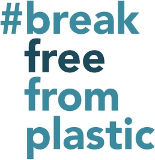
Break free from plastic brings together more than 500 NGO’s, from Asia, Europe and North America, to fight against the use of plastics. This global movement envisions a future without plastic pollution. Since its launch in September 2016, nearly 1,300 organizations worldwide have joined the movement calling for massive reductions in single-use plastics and for finding sustainable solutions to the plastics pollution crisis. These organizations share the common values of environmental protection and social justice, which guide their work at the community level and represent a global and unified vision.

Founded in 2017, Clean My Calanques is a Marseille association that campaigns for the preservation of the environment with the ambition of raising the general population’s awareness of environmental issues: quite a challenge!
Their missions are divided into 3 stages: To clean the Mediterranean coastlines, to educate the youngest in particular, and to share a good time while preserving the ecosystem.
They have already carried out 35 collection trips which have made it possible to remove more than 32 tonnes of waste from the creeks of the city of Marseille, Cassis, and elsewhere. They also went to meet more than 1,500 students during awareness-raising in schools.
Finally, they are in partnership with associations such as Sauvage Méditerranée in order to upgrade certain types of waste.

Founded in 2010, The Ellen MacArthur Foundation’s mission is to accelerate the transition to the circular economy. An influential organization, the Foundation has managed in just a few years to place the circular economy at the top of the agenda of business leaders, governments and academic research on the international scene.

Patrick Deixonne, navigator, explorer, discovers the pollution by the plastic waste during his crossing of the Atlantic with the row alone. After that he will set a new challenge. Explore the oceans and testify, communicate on a reality too far from the eyes of men. He has since organized exploration missions to study this phenomenon and alert the public and politicians to the seriousness of the situation.
2013, North Pacific expedition, 2014 – 2015, North Atlantic expedition, 2016, educational mission on the Atlantic coast, and soon: October 2019 the oceanic gyre of the South Atlantic.

Founded in 2014 and led by Emily Penn, this all-female expedition will study the impact of plastics on our oceans and their toxicity on women’s bodys .
eXXpedition will be launched in early October 2019 for a world tour of 2 years, aboard their ship (S.V. TravelEdge) with a team of 300 women (between 18 and 72 years from 30 different nationalities).
Greenpeace is an international network of independent organizations that act on the principles of non-violence to protect the environment, biodiversity and promote peace. It relies on a movement of committed citizens to build a sustainable and equitable world.

Founded in 2009, the 5 Gyres Institute has undertaken 19 research expeditions in the 5 gyres and in many lakes and rivers around the world in search of plastic.
They want to motivate us to move towards zero waste and the circular economy. To do this, they are putting online programs with the NEW 5 Gyres Trash Academy, to share the history of plastic and the solutions to be implemented today for a cleaner planet and a future without plastic.
Lonely Whale is an incubator of ideas that is driving change on behalf of our oceans. Inspired by the power of the community to create the change necessary to ensure the health of the planet, they are working toward a new era of collaboration, facilitating the creation of innovative ideas that push current trends in technology, media and sensitization to have a positive impact on the health of our oceans.
Led by legendary oceanographer Sylvia Earle, Mission Blue brings together a global coalition to raise public awareness, access and support a global network of marine protected areas. Mission Blue also engages in regular ocean expeditions to shed light on these vital ecosystems and strengthen support for their protection.
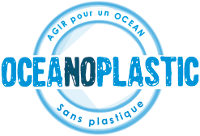
The association OCEANOPLASTIC is an NGO with an environmental vocation aiming to fight against coastal plastic pollution. Their mission is to identify the coastal sources of plastic pollution and act. Their actions focus on awareness, education, empowerment, support and solutions.
The goal is simple: remove plastic leaks in the sea. Legal or physical person, we are all responsible. Changing our purchasing habits, consumption and management of our waste is a priority.
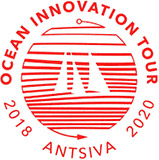
Have you developed an innovative technology that can serve the knowledge, the safeguard, the valorization or the sustainable exploitation of the oceans? Embark yourself and your technology aboard the ANTSIVA, our large floating laboratory. You will benefit from a quality logistic environment and will integrate the media, scientific and financial ecosystem of Ocean Innovation Tour.
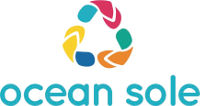
On average, eight million tonnes of plastic are dumped annually into our oceans. Ocean sole transform flip-flops into artistic and functional products to make us aware of the pollution problem. By creating these masterpieces, they not only create jobs for a country where the unemployment rate is 40%, but also send a message about how we can help our planet, our oceans and our people.
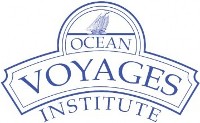
Founded in 1979 and based in San Francisco, the Ocean Voyages Institute association brings together a team of sailors, professors and conservationists who have given themselves the mission of teaching maritime sciences by raising awareness of the preservation of our oceans. while giving the opportunity to young people to learn sailing.
Ocean Voyages Institute was recently put forward thanks to their Kaisei project which made it possible to recover more than 100 tons of waste at sea and thus set the record for the largest cleaning carried out on the high seas.
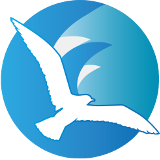
Palana Environnement covers all actions ranging from the identification of waste at sea, to its collection through sorting and recycling, to the eco-design of new objects with the “Sauvage” brand. They specialize in collecting ghost nets.
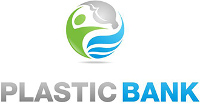
Would it be possible to solve the problem of plastic pollution present in our oceans, while ending extreme poverty?
This is the ambitious goal of The Plastic Bank created by David Katz. With them, plastic waste becomes a “currency of exchange” which allows collectors to get out of poverty, while contributing to depollution.
The plastic collected is sorted and enables the NGO to finance their operations by manufacturing plastic balls usable by other industries.

Plastic Oceans aims to educate people about the issue of plastic pollution and to get people to care about the issue so that they act with real solutions that will change the global dependence on plastic. Awareness-raising initiatives are developed around films and other content for schoolchildren and politicians.
The Plastic Odyssey association is the result of an idea by Simon BERNARD: “Transforming plastic waste into resources”. With the help of 3 collaborators, the group is looking to develop small recycling centres accessible to everyone to reduce ocean pollution and poverty.
In order to make these solutions known worldwide, they transformed a 40 m ship running on plastic waste (thanks to pyrolysis), into a laboratory embedded with their prototypes. They are now embarking on a world tour where, at each of their breaks along the way, they will adapt their technological solutions to the problems faced by local communities living along the most polluted coasts. All their solutions are offered in open source and without patent in order to be better adapted to each problem.

The Plastic Soup Foundation‘s mission is: “No plastic waste in our water!
We do not remove the plastic from the water; instead, we want to stop the growing amount of plastic polluting the ocean by tackling the problem at the source. Think about microplastics in cosmetics or synthetic fibers of clothes. These all end up in the ocean one way or another. They have been working towards this goal since 2011.
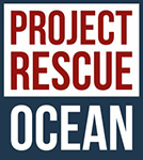
Starting from a simple Facebook page with the objective of raising public awareness of the state of the environment along our coastline, Project Rescue Ocean has become, in just 5 years an association bringing together more than 29,500 followers and 1,000 volunteers spread across the world.
Notably in 2019, they carried out more than 40 clearance and awareness-raising operations in France and 56 worldwide.
Their areas of action are: France, Haiti, Guadeloupe, Brazil, Ivory Coast, Rep. Of Congo, Qatar, Thailand, Bali, New Zealand, Polynesia, Hawaii.

Marco Simeoni, he decided in 2015 to launch a first scientific and environmental expedition, the Race for Water Odyssey, to draw up a first global assessment of the plastic pollution of our oceans. The report is clear, in the heart of the oceans extends a “soup” of microplastics that vogue at the whim of the ocean gyres. It is essential to prevent plastic waste from reaching the oceans, “explains Marco Simeoni. On April 9, 2017, Race for Water traveled around the world for a new five-year Odyssey to offer solutions to preserve the oceans from plastic pollution, a global environmental disaster.
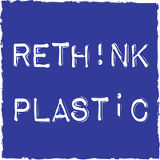
Rethink Plastic is an alliance of European NGOs bringing together thousands of active groups, supporters and citizens in all EU Member States.
They bring together political and technical experts from a variety of relevant fields and work with European policymakers to design and propose policy solutions for a future free from plastic pollution.
They are part of the global Break Free From Plastic movement.
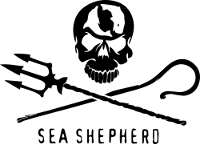
Sea Shepherd is an international organization whose direct actions are aimed at preserving the oceans. Sea Shepherd’s mission is to fight against the destruction of life and marine habitat as a whole … Since 1977, they have been using innovative direct action strategies to defend, conserve and protect the fragile biodiversity of our seas oceans, and uphold international conservation laws, all too often flouted.
Seas At Risk is a European network bringing together marine environmental organizations from across Europe, whose mission is to promote ambitious marine protection policies at European and international level.
Members and partners work together to ensure that life in the ocean is abundant, diverse, climate-resilient, and unaffected by human activities.
With over 30 members in the European countries, Seas At Risk speaks on behalf of millions of citizens who care deeply about the health and well-being of our seas and oceans.
Based in Brussels, Seas At Risk maintains close links with the European institutions, the United Nations, and the regional conventions of the seas and oceans, as well as with other organizations sharing the same objectives in Europe and in the world, and defends the marine cause for over 30 years.
You can have a look at their interactive map of European good practices for reducing and eliminating disposable plastic.

Created by Steve Stievenart, the Stop Plastic Pollution foundation aims to alert the world to plastic pollution. It acts on environmental awareness via sporting challenges, but also through scientific research and art, by giving a second life to the plastic collected on the beaches.
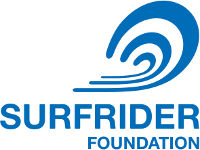
The Surfrider Foundation is a community of ordinary people who passionately protect our playground – the ocean, the waves and the beaches – that gives us so much pleasure.

The Tara Expéditions Foundation, the first recognized public utility foundation dedicated to the ocean, is developing, thanks to the schooner Tara, an open, innovative and novel ocean science to predict and better anticipate the impact of climate change. . It uses this high-level scientific expertise to raise awareness and educate younger generations, as well as to mobilize policy makers and enable developing countries to access this new knowledge.
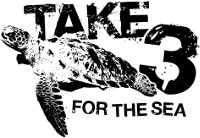
Take 3 is leading a movement of connected people for the planet to eliminate plastic pollution from the environment and support measures to prevent waste and pollution.
“Carry 3 garbage with you when you leave the beach, the waterways or … anywhere and you have made the difference”

Created by Boyan Slat, Ocean Cleanup is developing advanced technologies to rid the world’s oceans of plastic. A large-scale deployment of our systems would clean up 50% of the Great Pacific Garbage Patch every five years.
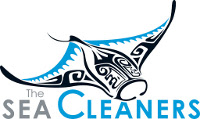
At the COP22 in Marrakech, the French navigator Yvan Bourgnon presented his quadrimaran project, equipped with a waste recovery system.
To take effective action against oceanic plastic pollution, the SeaCleaners has initiated the design of a giant waste collector QUADRIMARAN.
A real technological challenge for an innovative solution, it would be able to collect, sort and compact at sea a large amount of floating plastic macro-waste and this quadrimaran will be propelled using clean energy, thanks to solar panels and two wind turbines. A system under study could turn waste into energy to propel the ship.
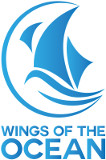
Wings Of the Ocean was born of a dream shared by two ecologists: cleaning up the oceans with its plastic, removing drift nets called “ghosts”, providing a research platform for oceanologists … All in the form of a “School” Sailing “around the world!
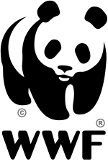
Since 1973, WWF France has been working on a daily basis to offer future generations a living planet. It works to stop the degradation of the environment and build a future where humans live in harmony with nature.
4ocean is not a non-profit organization but a company born in 2017 on a beach in Bali. In order to clean it up, Alex and Andrew decided to hire local full-time workers and to allow them to finance this cleaning, they decided to set up a business model. They therefore sell 4ocean bracelets from the recycling of collected waste.
For each bracelet sold, they agree to collect a pound of waste. Their profits are then used to step up clean-up operations, as well as to donate to ocean-related non-profit organizations like Lonely Whale.
If you know NGOs or associations to add to this list,
thank you for providing feedback!

